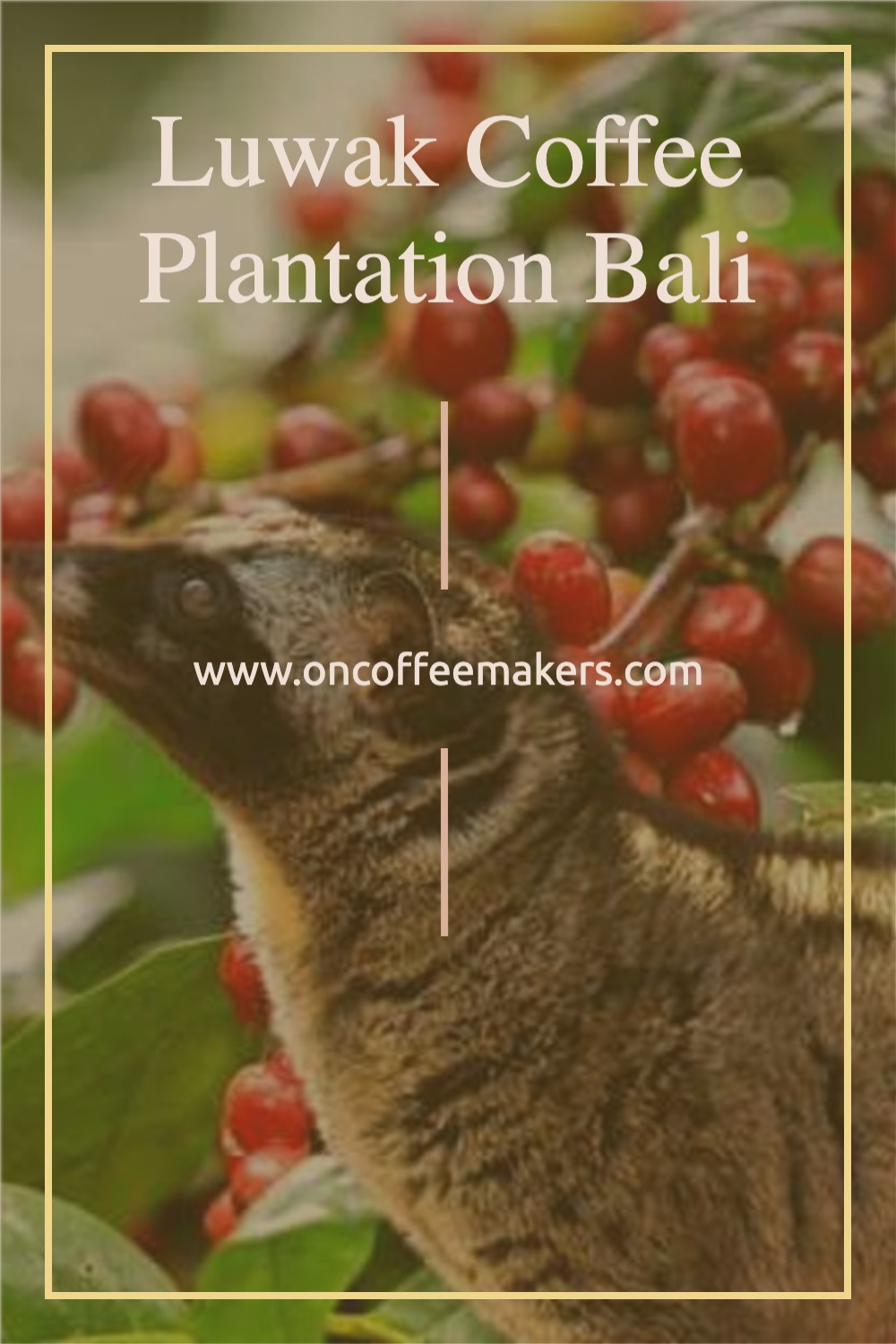Luwak Coffee Plantation Bali
Luwak plantation Bali Agrotourism features coffee robusta, pineapple, Balinese snake fruit (salak), simple Balinese potatoes, fruit stars, cacao, jackfruit, and durian tree.

You are a coffee connoisseur who is planning a trip to Bali and would like to observe the production of luwak coffee, which is the most expensive coffee in the world.
There is a fascinating narrative hidden beneath the legend of Coffee Luwak. On the volcanic islands that made up the Dutch East Indies, coffee plantations were first created by the Dutch at the beginning of the 18th century. Arabica beans used to make this Coffee Luwak coffee are grown on the enchanted island of Bali.
In the early years of the Dutch Coffee Plantation, the proprietors prevented the local locals from harvesting and boiling coffee beans for their personal consumption. This was done to prevent the natives from stealing the coffee beans. The native people, being resourceful, quickly learned that the Asian Palm Civet preferred eating coffee beans.
This led to the development of a new food source for them. After being harvested, cleaned, and sun dried, the Luwak beans used to make this coffee were roasted to produce a beverage that lacked any acidity and had a deep, rich flavor. The action of the bean traveling through the digestive tract of the civet results in a chemical alteration of the proteins contained in the Kopi Luwak coffee bean, which produces flavors that are more nuanced and mellow than those found in traditional coffees.
It is stated that the coffee that comes from this process is unlike any other coffee in the world (literally). It has a flavor that is thick and substantial, with undertones of chocolate and/or caramel. Earthy, musty, and exotic are some of the other words that have been used to describe it. The body can be somewhat syrupy, and it will have the silkiest mouthfeel of any coffee you have ever tasted.
One can't help but be curious about the origin of this coffee. What led to its initial discovery?
Who first proposed the idea of drinking coffee made from the waste that an animal digests and then excretes?
There are a lot of hypotheses floating around, but this one happens to be my personal favorite. It is hypothesized that local natives and low-income families in the area were unable to acquire coffee since they barely had enough resources to maintain their lives. As a result, they gathered the droppings left behind by the Luwak and prepared them for roasting.
Naturally, each one was meticulously cleaned, and the appropriate precautions were taken to guarantee that the food was fit for human consumption.
Agrotourism in the Teba Sari region
See how the Asian palm civet eats, digests, and extracts Luwak coffee beans in Teba Sari Agrotourism. While you're there, don't miss the opportunity to take a stroll through its coffee garden and observe the locals at work. If you're in Bali, don't forget to sample the local coffee, chocolate, and rice wine.
Agrotourism in Alam Sari
Explore the Alam Sari Agro-vast tourism's coffee plantation on a delightful tour. Many different types of coffee plants can be seen, as well as the unusual method of turning them into a cup of coffee. Luwak coffee manufacturing is included in this list. Not to mention, the property has a wonderful ambience and an abundance of natural light. In addition to participating in the tour, visitors are encouraged to partake in additional activities, such as traditional craft making with the help of the locals.
By Douglas
How to make coffee without coffee machine?
How to use a French press as a coffee maker?
Learn more about these methods at the free coffee courses online.
About US | OCM Profile
OCM (OnCoffeeMakers.com) was started in 2007 with the first webpage about coffee machines. And for a number of years, we focused on helping people find their desired coffee machine (we still are helping folks with that! So, if you are looking for coffee machines for office or restaurants - check out the link).
In 2010, we started getting enquiries on restaurant marketing and we start to help food and beverage brands with their marketing. Below are campaigns and events that we have done over the years:
OCM's campaigns: F&B Marketing Ideas by OCM
OCM's Events: F&B Industry events by or with OCM
Check out this restaurant marketing guide to learn more about the many campaigns and companies we have worked with.
Since then, we have also created many marketing workshops and classes for the F&B industry. Many of these modules are still running in tertiary institutions such as Temasek Polytechnic Skillsfuture Academy and also ITE College East COC classes, below are some snippets of our lectures and workshops:
OCM’s F&B workshops: Food and Beverage Marketing Lectures | Workshops - click to watch classes on customer journey map, JTBD and more.
So, if you are looking for industry practitioners to help you scale your coffee or F&B businesses, do drop us a message or book an appointment. Do also check out our various social media platforms on regular F&B and coffee market updates:
For regular coffee (F&B) related videos: OCM Youtube
For Daily Coffee Inspiration (fun coffee content): OCM IG
For insights into the coffee (F&B) industry: OCM LinkedIN
PS: For the coffee lovers, we continue to share coffee articles (and videos) and have also started a free coffee class section (with free online coffee training supported by coffee partners).